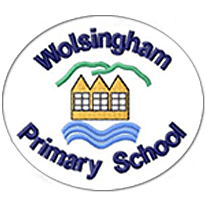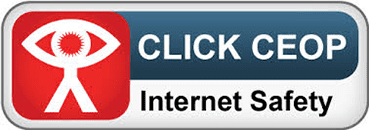In this section of the website, you will find information about our approach to teaching Science at Wolsingham Primary School.
- The Intent provides information on the relevance of Science at Wolsingham Primary School.
- The Implementation outlines how teachers at Wolsingham Primary School teach Science across the school across all stages.
- The Impact outlines what outcomes are achieved for the children at Wolsingham Primary School.
- Subject Progression outlines the learning journey that our children take through Science at Wolsingham Primary School.
- Useful Subject Information outlines any additional information about the teaching and learning of Science at Wolsingham Primary School.
Intent of ScienceAt Wolsingham Primary School, in conjunction with the aims of the 2014 National Curriculum programmes of study for Science and Understanding of the World in the Early Years Foundation Stage, our Science teaching offers a curriculum that is progressive throughout the school and gives opportunities for pupils to:
- develop scientific knowledge and conceptual understanding through the specific disciplines of Biology, Chemistry and Physics;
- develop understanding of the nature, processes and methods of Science through different types of science enquiries that help them to answer scientific questions about the world around them;
- be equipped with the scientific knowledge required to understand the uses and implications of Science, today and for the future.
- develop the essential scientific enquiry skills to deepen their scientific knowledge.
- use a range of methods to communicate their scientific information and present it in a systematic, scientific manner, including I.C.T., diagrams, graphs and charts.
- develop a respect for the materials and equipment they handle with regard to their own, and other children’s safety.
- develop an enthusiasm and enjoyment of scientific learning and discovery.
The Science curriculum develops the priorities for pupils at Wolsingham Primary School in the following ways:
Basic skills – Pupils are given lots of opportunities to reinforce and further develop their reading skills and use of subject-specific vocabulary through the different topics taught. Writing skills are developed through research and writing up of scientific enquiries. Mathematical skills are also developed through the use of measuring and statistics.
Resilience and Perseverance – Pupils are encouraged to ask their own questions and seek their own answers during scientific enquiry work. They are taught to develop their resilience and perseverance skills by understanding that answers aren’t always immediate and outcomes aren’t always as expected when carrying out investigations.
Social Awareness – Pupils are taught about a range of scientists from around the world and the impact they have had on our lives; understanding that it doesn’t matter which culture or gender you are from in order to make a difference.
Knowledge – Pupils are encouraged to develop a curiosity of the world, to ask questions and to develop a confidence to try things out. Lessons are structured through the use of carefully scaffolded questions which by Upper Key Stage 2, allows children to then be able to develop their own lines of enquiry to find an answer to a problem.
Science in the Early Years
A scientist in the early years will explore the natural world around them. They will be inquisitive and gain lots of knowledge through questioning and exploring. They will comment on and ask questions about their familiar world, such as the place they live and the natural world. Through discussions with peers and adults children will talk about some of the things that they have observed, such as plants, animals, natural and found objects. Discussing why things happen and how things work, developing an understanding of growth and decay over time. Throughout their early years, children will talk about foods and healthy lifestyles, including showing some understanding of good practices with regard to exercise, eating, sleeping, hygiene and how these contribute to good health. Through a range of child initiated and adult planned topics, children will experience, and gain some knowledge and understanding about scientific concepts such as light and dark, space, seasons, plants, materials and our bodies. Role play opportunities and visitors into school also contribute towards scientific knowledge and understanding in the early years. They will learn to show care and concern for living things through opportunities such as class pets, visitors in school or in the community. A lot of learning in the early years takes place through purposeful play, both indoors and outdoors. Towards the end of Reception children will be learning skills to equip them for their future learning and later success in Year 1.
Implementation of SciencePupils have weekly lessons in Science throughout Key Stage 1 and 2. In Early years, Science is taught through the children learning about the world around them in their learning through play. Additional opportunities are provided in Science, such as Science weeks and STEM days for pupils, educational visits linked to the Science curriculum and in-school visits from working scientists. We endeavour to ensure that the Science curriculum we provide will give pupils the confidence and motivation to continue to further develop their skills into the next stage of their education and life experiences.
 Please click on the link below for our more detailed Science curriculum.
Please click on the link below for our more detailed Science curriculum.
Impact of ScienceSubject ProgressionLong Term Plan
At Wolsingham Primary School, in conjunction with the aims of the 2014 National Curriculum programmes of study for Science and Understanding of the World in the Early Years Foundation Stage, our Science teaching offers a curriculum that is progressive throughout the school and gives opportunities for pupils to:
- develop scientific knowledge and conceptual understanding through the specific disciplines of Biology, Chemistry and Physics;
- develop understanding of the nature, processes and methods of Science through different types of science enquiries that help them to answer scientific questions about the world around them;
- be equipped with the scientific knowledge required to understand the uses and implications of Science, today and for the future.
- develop the essential scientific enquiry skills to deepen their scientific knowledge.
- use a range of methods to communicate their scientific information and present it in a systematic, scientific manner, including I.C.T., diagrams, graphs and charts.
- develop a respect for the materials and equipment they handle with regard to their own, and other children’s safety.
- develop an enthusiasm and enjoyment of scientific learning and discovery.
The Science curriculum develops the priorities for pupils at Wolsingham Primary School in the following ways:
Basic skills – Pupils are given lots of opportunities to reinforce and further develop their reading skills and use of subject-specific vocabulary through the different topics taught. Writing skills are developed through research and writing up of scientific enquiries. Mathematical skills are also developed through the use of measuring and statistics.
Resilience and Perseverance – Pupils are encouraged to ask their own questions and seek their own answers during scientific enquiry work. They are taught to develop their resilience and perseverance skills by understanding that answers aren’t always immediate and outcomes aren’t always as expected when carrying out investigations.
Social Awareness – Pupils are taught about a range of scientists from around the world and the impact they have had on our lives; understanding that it doesn’t matter which culture or gender you are from in order to make a difference.
Knowledge – Pupils are encouraged to develop a curiosity of the world, to ask questions and to develop a confidence to try things out. Lessons are structured through the use of carefully scaffolded questions which by Upper Key Stage 2, allows children to then be able to develop their own lines of enquiry to find an answer to a problem.
Science in the Early Years
A scientist in the early years will explore the natural world around them. They will be inquisitive and gain lots of knowledge through questioning and exploring. They will comment on and ask questions about their familiar world, such as the place they live and the natural world. Through discussions with peers and adults children will talk about some of the things that they have observed, such as plants, animals, natural and found objects. Discussing why things happen and how things work, developing an understanding of growth and decay over time. Throughout their early years, children will talk about foods and healthy lifestyles, including showing some understanding of good practices with regard to exercise, eating, sleeping, hygiene and how these contribute to good health. Through a range of child initiated and adult planned topics, children will experience, and gain some knowledge and understanding about scientific concepts such as light and dark, space, seasons, plants, materials and our bodies. Role play opportunities and visitors into school also contribute towards scientific knowledge and understanding in the early years. They will learn to show care and concern for living things through opportunities such as class pets, visitors in school or in the community. A lot of learning in the early years takes place through purposeful play, both indoors and outdoors. Towards the end of Reception children will be learning skills to equip them for their future learning and later success in Year 1.
Pupils have weekly lessons in Science throughout Key Stage 1 and 2. In Early years, Science is taught through the children learning about the world around them in their learning through play. Additional opportunities are provided in Science, such as Science weeks and STEM days for pupils, educational visits linked to the Science curriculum and in-school visits from working scientists. We endeavour to ensure that the Science curriculum we provide will give pupils the confidence and motivation to continue to further develop their skills into the next stage of their education and life experiences.
 Please click on the link below for our more detailed Science curriculum.
Please click on the link below for our more detailed Science curriculum.


